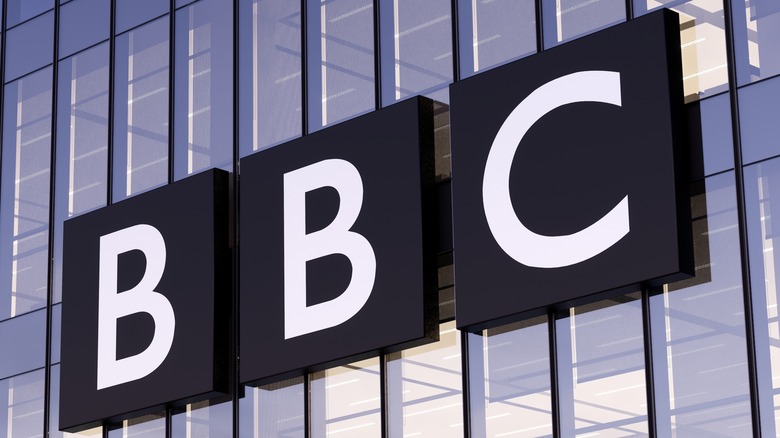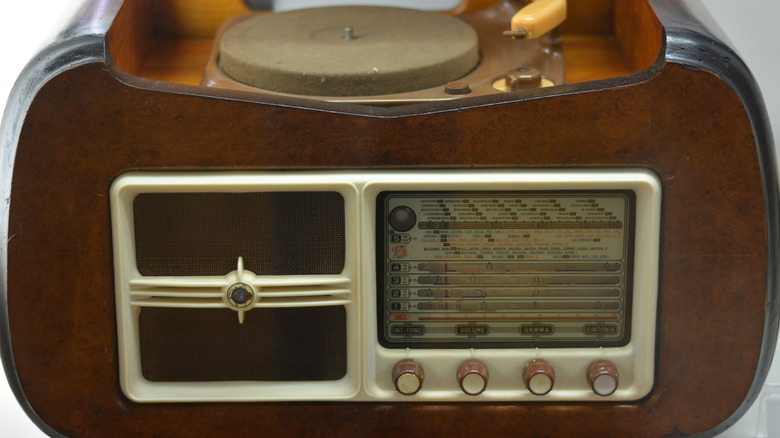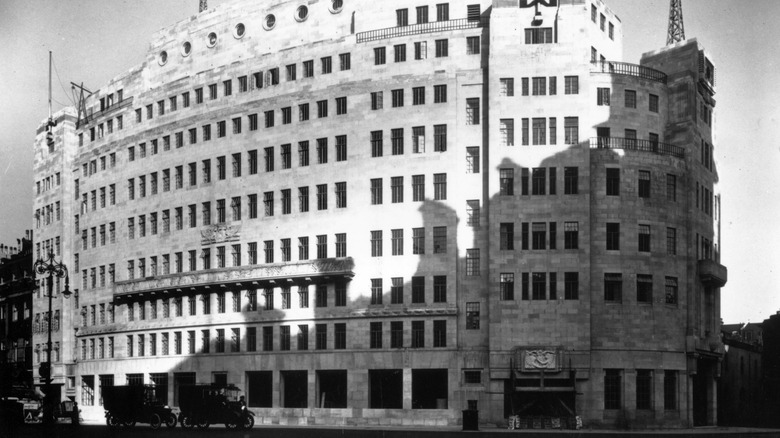The Unexpected Reason The BBC News Once Had 'No News' To Broadcast
With the advent of the 24-hour news cycle, people all around the world seem to be bombarded by current events and more all day, every day. Of course, this state of constant information is fairly recent. News once traveled slower and through fewer avenues than it does now. Even still, many of the first major news sources still exist today, such as NBC and CBS in the United States and CBC in Canada.
The most well-known British news network is the British Broadcasting Corporation — commonly known as the BBC – and has existed for nearly 100 years. The organization started out as the British Broadcasting Company in October 1922, according to the BBC. By the end of that year, the BBC carried out daily radio broadcasts and then became a chartered public corporation in 1927, meaning that it was not run by the British government or a commercial broadcaster.
The BBC began regular radio broadcasts in the 1920s
Though the BBC had been successfully broadcasting throughout the United Kingdom since 1922, on April 18th, 1930 the BBC reported "there is no news tonight" during their evening broadcast. The station proceeded to play 15 minutes of piano music followed by the opera "Parsifal" performed from the Queen's Hall, as the BBC writes. Yet, noteworthy things were in fact occurring on that day.
Origins explains that nationalist rebels attacked the armory at Chittagong in India, which was still under British control at the time. The rebels cut all the telephone and telegraph lines, making it impossible for the BBC to report on it regardless of whether they planned to do so or not. Other than this overseas uproar, Britain saw local news such as a fire and a car accident. So why did the BBC say that there was no news on April 18th, 1930?
It came down to what the editors considered to be newsworthy and access to news in general. In 1930, the BBC did not have a department designated solely for the news, and the company employed just four staff members to cover all the events. These staff members received information from news agencies and kept their reports brief. However, reporting on the news was not the BBC's main goal.
The BBC had a high standard for what was newsworthy
Appointed in 1922, the first General Manager of the BBC was John Reith who wanted to include things like classical music and literary talks in the broadcast schedule. Given that the BBC was not a commercial enterprise, Reith did not need to worry about advertisers wanting the largest audiences possible, and so only a few news items lived up to the BBC's standards of reporting (via Origins). In other words, things that would get clicks or views on today's news outlets did not concern Reith.
In addition to valuing more than just news, the BBC strongly opposed sensationalism and did not aim to conform to the usual "journalistic news values" held by its peers in the journalism industry. Despite the omission of poignant and in-depth news stories, listeners began tuning in more and more throughout the 1930s, according to the BBC. The newsreaders gained fame even though they only read the news in short bulletin format.
News today is chock full of political and often polarizing opinions. Hosts of news shows bring in commentators to fill longer time slots and there are even entire channels on both TV and radio dedicated to current events. Perhaps broadcasters should take a page out of the BBC's operations from the 1930s and just report the facts.


